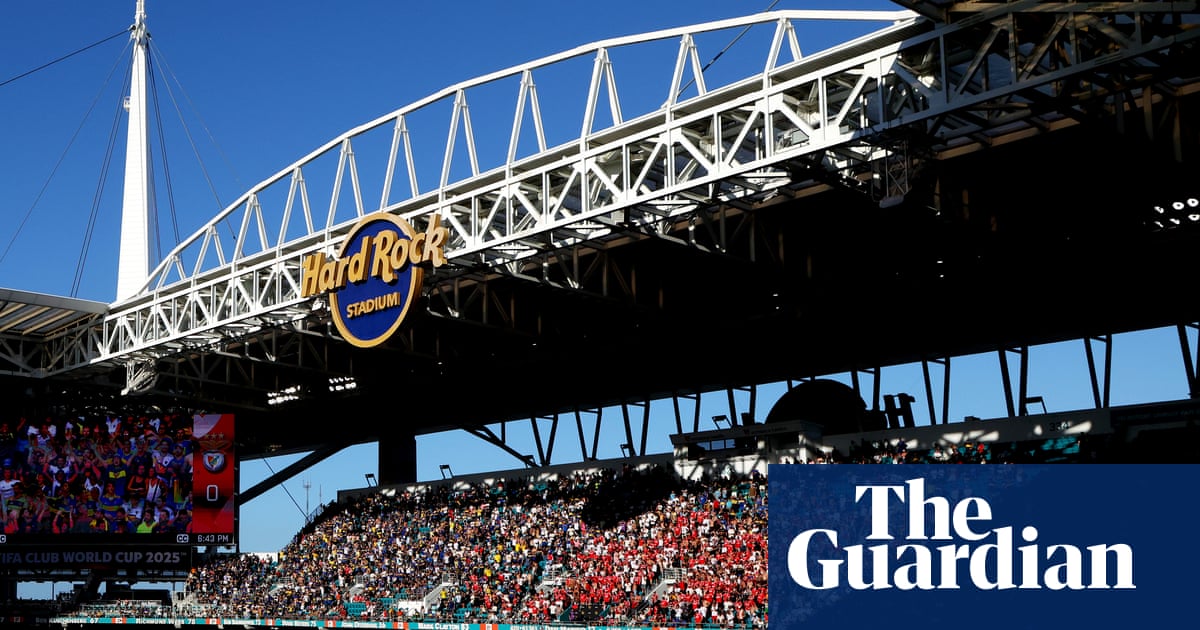La Liga’s ambitious plan to stage an official league match in Miami has collapsed once again, marking the fourth failed attempt to bring Spanish top-flight football to the United States since 2018. The latest debacle has not only exposed serious shortcomings in the league’s planning and communication but also alienated key stakeholders, including clubs, players, and fans. The fallout has been particularly harsh for Villarreal, the club designated as the “home” team for the proposed December 20 match against Barcelona, which found itself sidelined and disrespected in a process marked by secrecy and poor management.
The defining image that encapsulates the collapse was broadcast live on Spanish television from Estadio de la Ceràmica, Villarreal’s home ground. As the official announcement that the Miami game was canceled broke during Villarreal’s Champions League match against Manchester City, cameras captured Villarreal’s chief executive, Fernando Roig Negueroles, visibly shocked and frustrated. Sitting in the stands, cigarette in mouth, he stared at his phone as the statement became public, then paced anxiously, exchanging looks of disbelief and anger with those around him. His reaction—a mix of incredulity, fury, and resignation—highlighted the deep frustration felt by Villarreal, which had been kept in the dark and left to bear the brunt of the fallout.
Villarreal’s predicament was particularly galling because the club had made significant sacrifices for the Miami project. Unlike Barcelona, which was to retain its home game in Spain, Villarreal agreed to give up a home fixture and endure the logistical challenges of traveling across the Atlantic. The club had promised fans discounted or free tickets, chartered flights, and organized crews, only to be left uncertain about whether the match would actually happen. Despite repeated requests, Villarreal never received the necessary guarantees, making preparations nearly impossible. By the time the cancellation was confirmed, the club had already been aware for several hours, but the information had not been shared with players, staff, or supporters. Villarreal’s coach, Marcelino García Toral, openly criticized the league’s handling of the situation as “an absolute lack of respect,” a sentiment echoed in an official statement expressing “deep discontent” with La Liga’s poor management.
Fernando Roig’s frustration was compounded by the fact that Villarreal was not receiving any financial compensation for the ordeal. Unlike Barcelona, which stood to benefit significantly from the Miami game’s revenue—Joan Laporta, Barcelona’s president, had claimed earnings would offset playing twice at the small Johan Cruyff Stadium—Villarreal was effectively sacrificing a home game and their fans’ experience without any monetary gain. Roig sharply criticized the supporters’ club that had voiced opposition to the Miami plan, pointing out its relatively small financial contribution compared to the club’s broader investments, including a nearly €2 million budget for soccer schools and US projects. This internal tension further underscored the complicated and fraught nature of the Miami venture.
The Miami match was intended to be a landmark event for La Liga, signaling the league’s push to globalize and tap into the lucrative US market. The plan had even secured the backing of the Spanish Football Federation (RFEF), now under new leadership following a break with former president Luis Rubiales, with whom La Liga president Javier Tebas had been at odds. This endorsement facilitated conditional approval from UEFA, which expressed reservations but did not block the match outright. Additionally, the league had won a legal battle with FIFA, granting the promoters, Relevent, the authority to organize the game overseas. However, despite these regulatory green lights, critical procedural steps were overlooked. Key stakeholders such as the players’ union (AFE), fans’ groups, US Soccer, and CONCACAF had not been properly consulted, creating a cascade of resistance and confusion.
Players’ protests became a visible symbol of dissent during the week leading up to the scheduled game. Across La Liga matches, players staged a 15-second refusal to play as a demonstration against the league’s opaque and heavy-handed approach. Importantly, this was not an outright rejection of the Miami game itself; Atlético Madrid captain Koke clarified that players would support the project if it were presented transparently and with their input. The players’ union, led by David Aganzo, emphasized that their demands centered on transparency and dialogue rather than opposition to the concept. Yet the league had initially dismissed their concerns and even threatened consequences for players who protested. The attempt to suppress the

